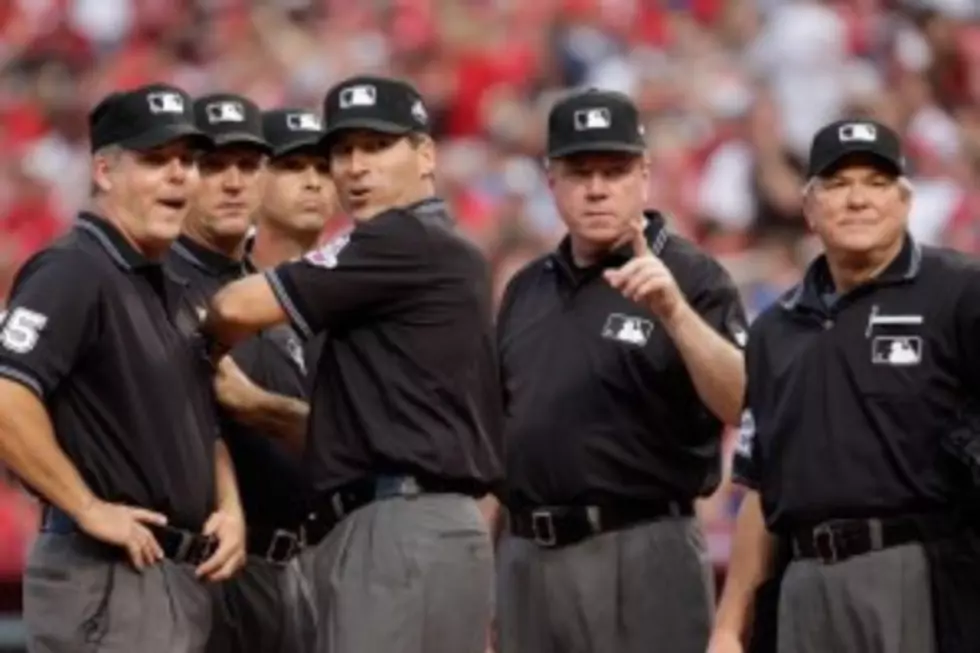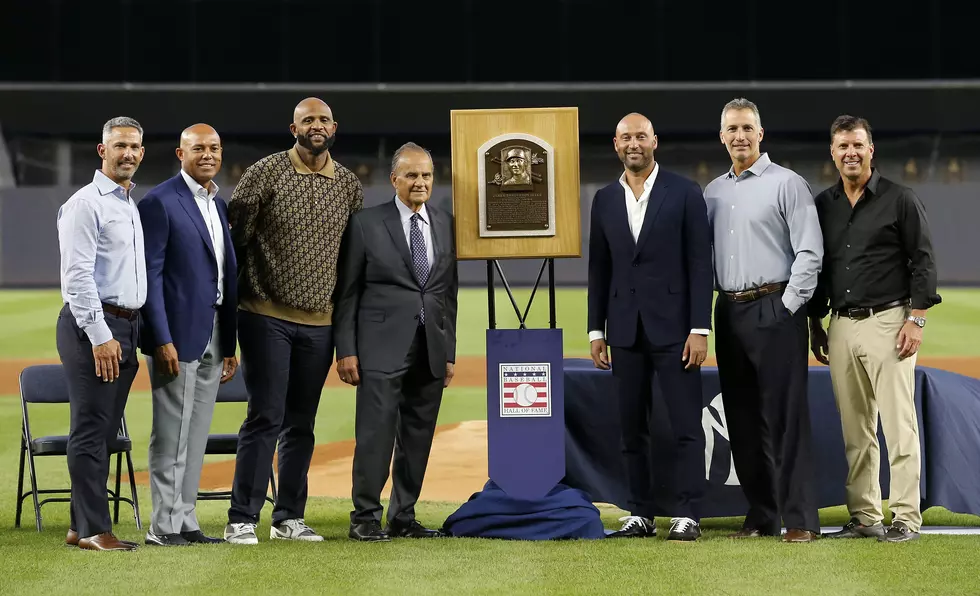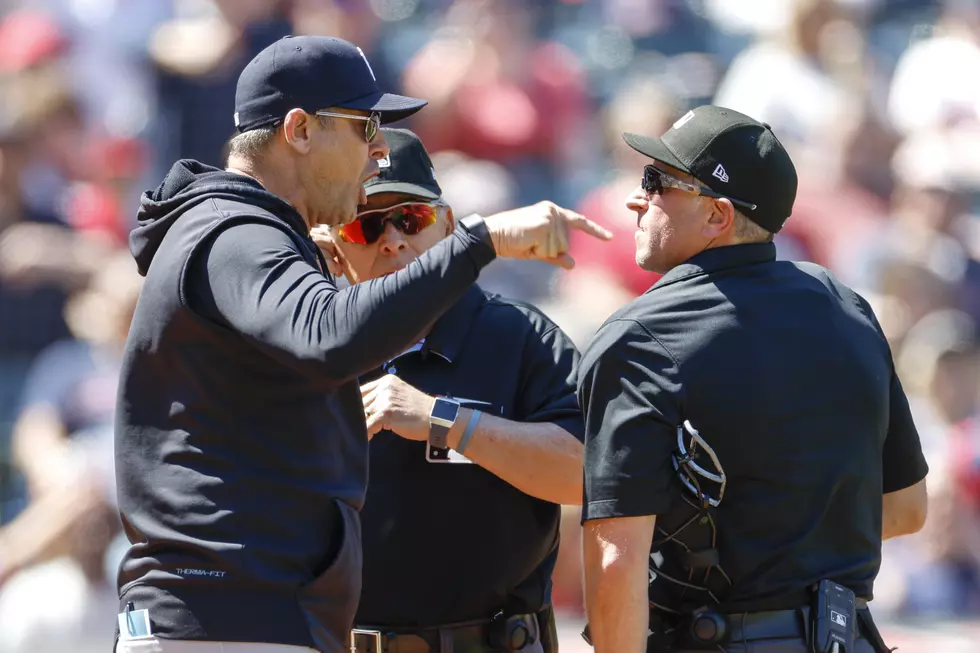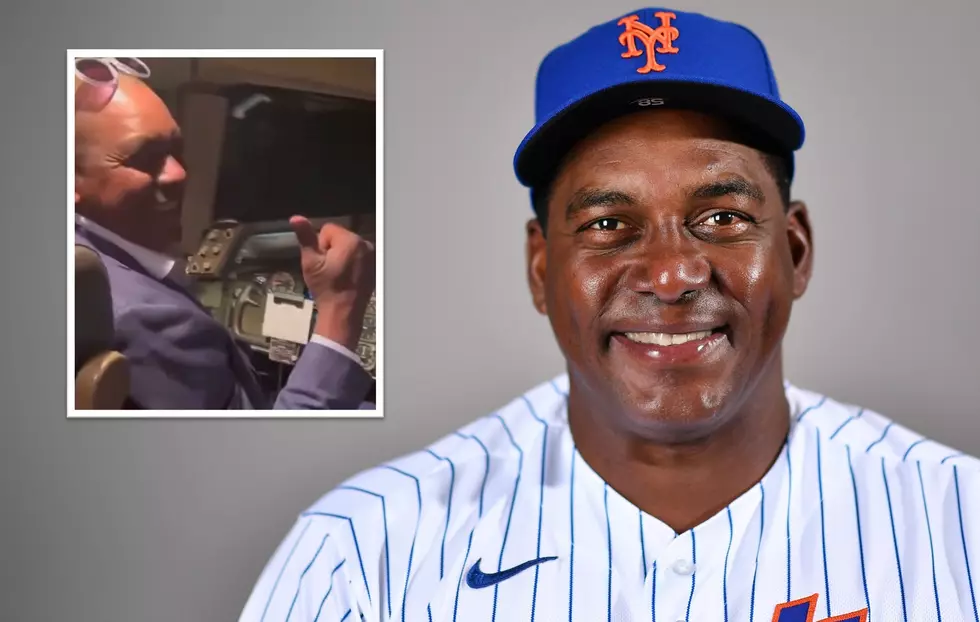
A Time Limit Rule MLB Umpires Do Not Enforce
The 4+ hour game between the New York Yankees and the Boston Red Sox got me to think back to a conversation that I had with a college umpire last year. In the long conversation I had with this particular gentlemen, he pointed out that there are two time limit rules Major League Baseball umpires do not enforce anymore. One of which is specific to the amount of time a pitcher is required to deliver the ball.
What exactly do these rules say? Why aren't they being enforced anymore? I'll explain
Now in every state there are laws that are in writing that are never enforced. They are the silliest rules too like in the state of New Jersey, handcuffs may not be sold to minors, and in Massachusetts, shooting ranges may not have targets set up that resemble human beings.
In Major League Baseball (MLB), there are a whole bunch of written rules in the official rule book. A handful of rules go unnoticed. On a trip to Massachusetts last year, I ran into a gentleman who had umpired college level games regionally. He took the MLB umpiring exam and frequently carries around the MLB official rules book. So I knew I had to pick his brain about why MLB games take too long, especially Red Sox and Yankees games. He immediately went to his rules book and pointed out two rules.
The first rule is rule number 8.04. It states the following "When the bases are unoccupied, the pitcher is to deliver the ball to the batter within 12 seconds." That is from the time the pitcher is in possession of the baseball with the batter in the batter's box ready to go to when the ball is thrown. The penalty for an obvious delay of this rule is a "ball" added onto the count. Next, under rule 8.05, which is the balk rule, under part 'h' of that rule, it says that if the "pitcher unnecessarily delays the game", that the umpire can call a balk when runner(s) are on base.
Now say it out loud "these rules are NEVER enforced"! Think about how long it took some of the pitches to thrown in those Red Sox and Yankees games. I kept track of a bunch of batters in which nobody was on base, and the pitchers consistently took longer than 30 seconds to deliver the ball. This is a rule that if enforced, can significantly speed up the game.
On the flip side, the umpire can also penalize the batter for not getting into the batter's box in a timely manner. This rule is 6.02 which states "the batter shall take his position in the batter's box promptly when it is time at bat." If the batter attempts to leave the batter's box, the umpire can still allow the pitch to count and call "ball" or "strike".
In 2010, umpire Angel Hernandez got to be famous for this since he didn't grant some batters time to be called to stop the game and allowed the ball to be pitched and called appropriately. Now if the batter refuses to take his position inside the batter's box and/or intentionally delays the game, the umpire can also penalize the batter by calling a strike against the batter.
Now this gentleman told me that the reason these rules aren't enforced currently is because MLB doesn't want to significantly interfere with the game in this manner, and in addition, would have to enforce these rules evenly. They are afraid the perception would be that umpires would be after certain players and teams for delaying the play of games and not enforcing others. MLB doesn't want to start any battles and wants to keep out of games as much as possible, which is why they would rather step to the side and let the clock run to keep it balanced.
So for those of you who wish there was a "shot clock" added to all MLB games or some sort of clock or timer to pitchers and/or batters, here are two rules already established that just are never enforced, that can be tools to speed up the time of play in baseball.
More From 104.5 THE TEAM
![Will MLB Allow A Foreign Substance To Be Used By Pitchers? [AUDIO]](http://townsquare.media/site/78/files/2015/05/Will-Smith.jpg?w=980&q=75)








